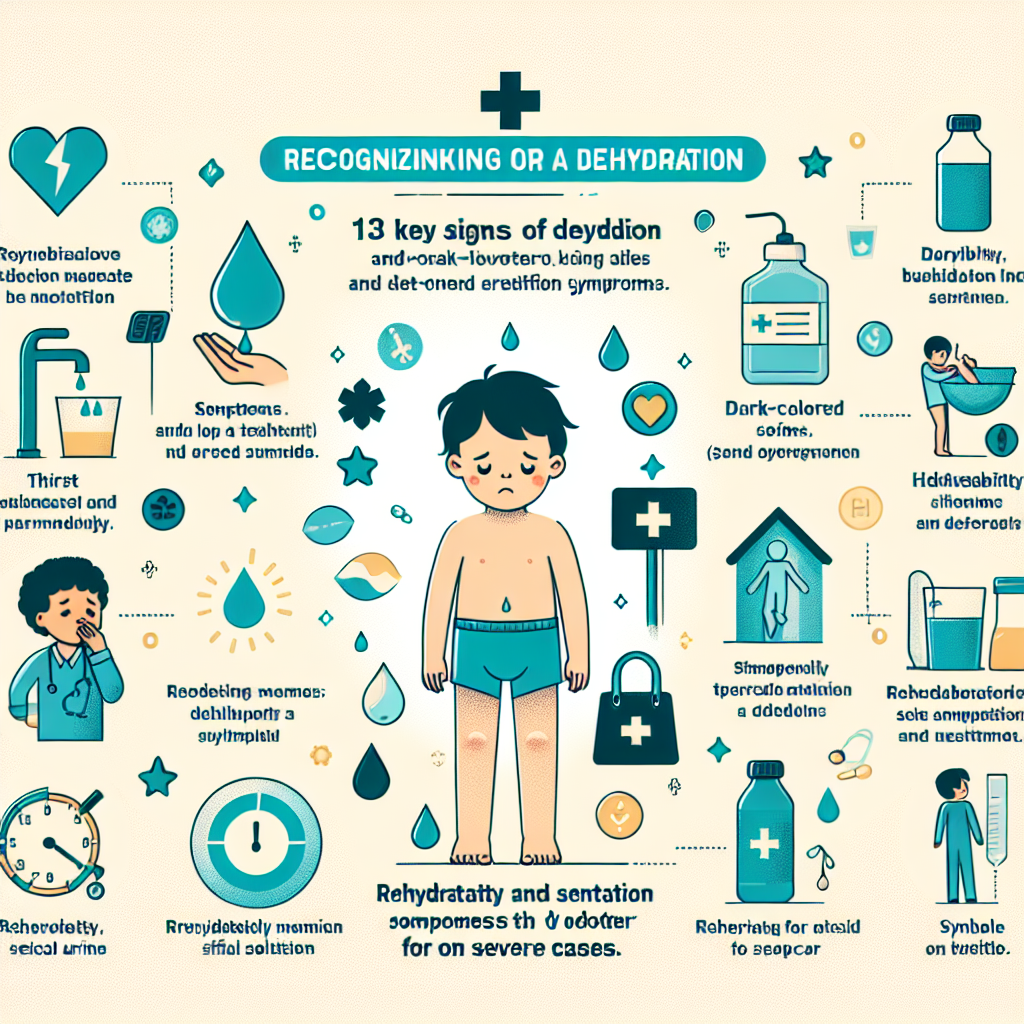13 Signs of Dehydration in Children and Their Treatment
Child development is a journey that requires a lot of attention and care, and maintaining proper hydration plays a critical role in their health. Dehydration can seriously affect a child's development and well-being, but how can we detect the early signs of this condition? This article provides a detailed look at the signs, effects and treatments of dehydration in children.
Signs of dehydration in children
The following indicators can help recognize dehydration in children:
-
Dark-colored urine and less frequency: If you notice that your little one has darker-colored urine than normal or goes to the toilet infrequently, this could be a sign of dehydration.
-
Dry mouth and increased thirst: Children may have chapped lips and frequently ask for water.
-
Tiredness and irritability: Dehydrated little ones may seem more tired or irritable than usual.
-
Sunken eyes and absence of tears: During crying, if no tears are produced, it is a clear sign of alarm.
-
Dry skin and lack of elasticity: Skin that does not quickly return to its original shape after being pinched may indicate dehydration.
-
Poor ability to concentrate: Children who are not properly hydrated may have difficulty concentrating.
-
Rapid breathing or rapid pulse: These may be the body's response to the struggle to maintain adequate fluid levels.
-
Decreased saliva production: It results from a reduction in fluid intake.
-
Constipation: Lack of water in the body can lead to difficulty in eliminating defecation.
-
Prolonged headaches: Dehydration often causes headaches among children.
-
Sunken fontanel (in babies): The soft part of the baby's head may appear sunken.
-
Lack of appetite: Children may refuse to eat or have a low appetite.
-
Sudden weight loss: This can be a sign that your body is losing fluids quickly.
Effects of dehydration on child development
Motor and cognitive development can be affected by dehydration. In children, adequate hydration is crucial for optimal brain and muscle function. Therefore, it is essential to ensure that our children consume enough water to support all physical and mental processes.
Treatment of dehydration
When it comes to treating dehydration, the main approach is oral rehydration with special solutions or water. In more severe cases, medical treatment is necessary, and children may require intravenous rehydration. It is important to remember that treatment should begin as soon as possible after identifying signs of dehydration.
Prevention of dehydration
Parents can prevent children from becoming dehydrated by making a water plan and providing fluids regularly. It is also important to monitor the amount of fluids lost through sweat during physical activities or in hot conditions.
Conclusion
Recollecting, dehydration can have adverse effects on children's development and must be addressed quickly and effectively. Watch for signs of dehydration and act quickly to ensure your little one stays healthy and hydrated. For more advice on taking care of children's health, subscribe to our newsletter or visit the relevant section of our store. Let's make sure our little ones grow up happy and healthy, starting with proper hydration.














































































































































